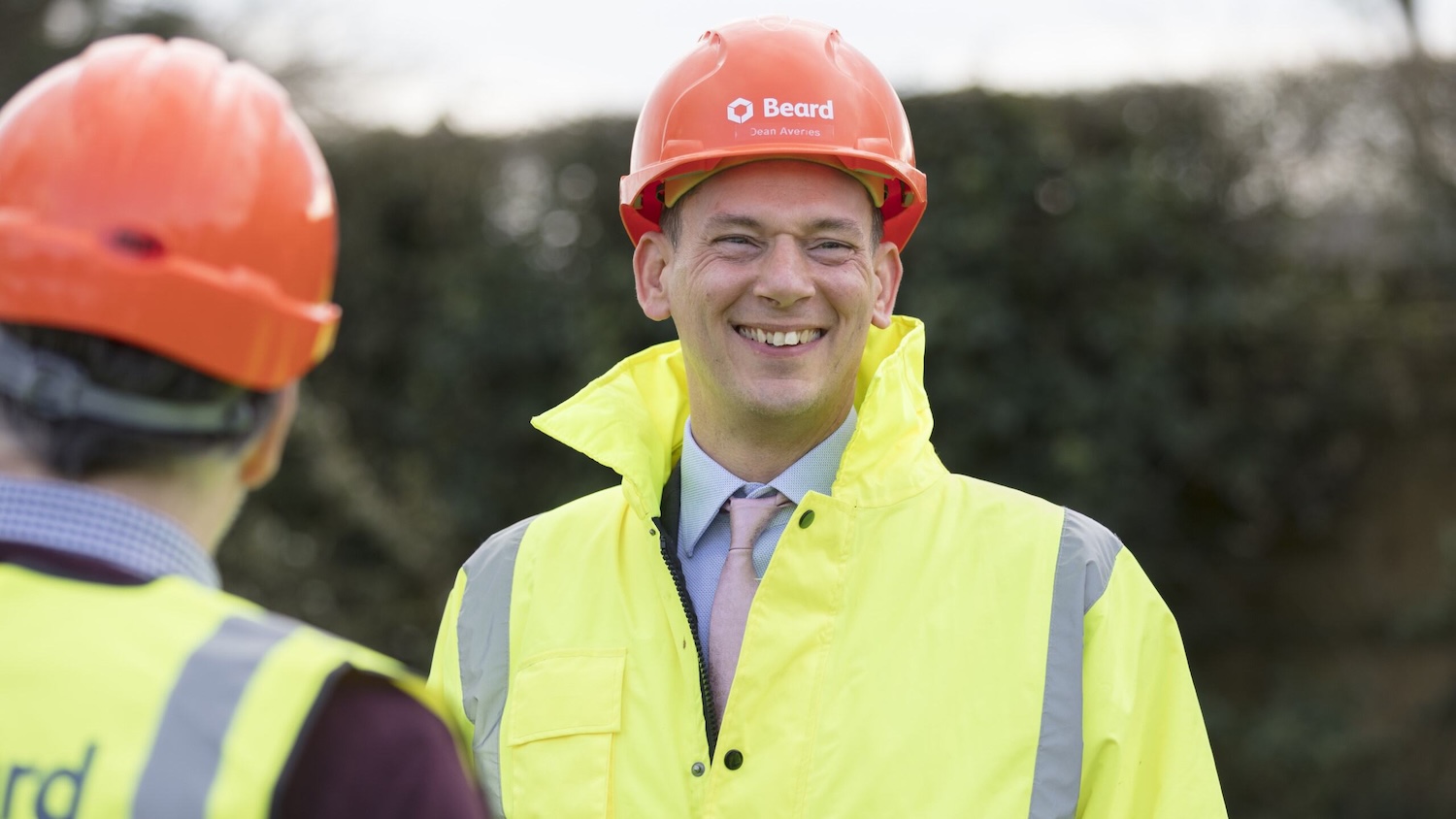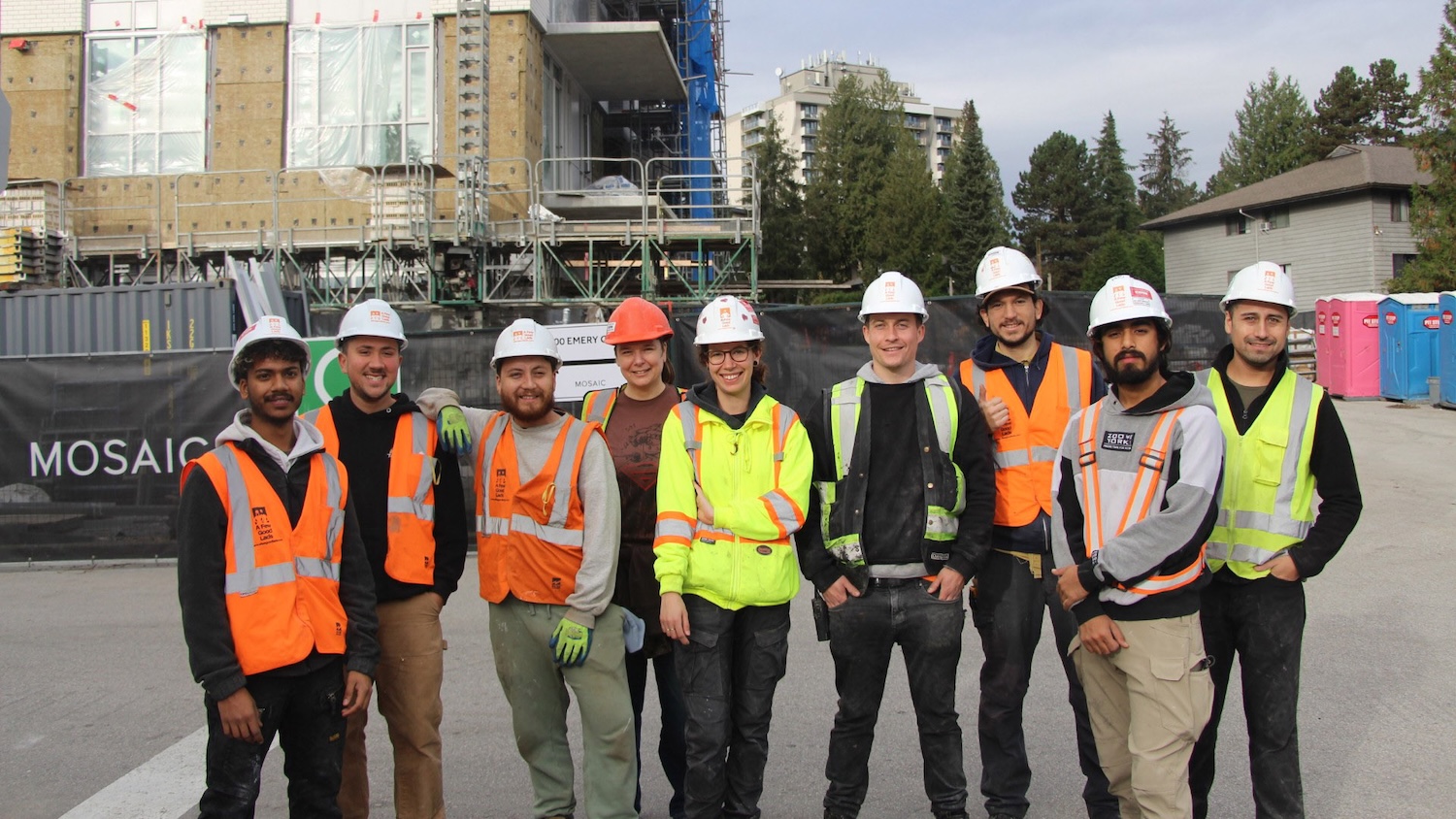
National Apprenticeship Week: building a skilled workforce
Apprentice turned recruitment officer Daniel Simpkins believes collaboration between construction firms and apprenticeship services such as EN:Able Futures is key to tackling long-term skills challenges
What attracted you to an apprenticeship?
For me, it was the ability to earn while I learned. I’d been to sixth form and left after a year because I knew it wasn’t for me. Getting work and life experience were more important.
I wanted to earn my own money and to have my own independence, as well as gain useful life skills in a real working environment.
As a shy 16-year-old, having to speak to customers and build relationships helped my confidence grow.
What transferable skills and experience gained during your apprenticeship have been the most useful in your role at EN:Able Futures?
I acquired many practical skills doing my business admin level 2 and 3. I became very competent at admin, which can be applied in all industries.
Business admin isn’t just data entry. I also learned practical skills, like how to be highly organised through time management and establishing routines. I also booked candidates for interview appointments and interviewed them myself, which sometimes felt uncomfortable as I was only a few years older than they were.
However, I’m so grateful for that experience as it helped me quickly develop my maturity and interpersonal skills, which have been essential to every role I’ve had since.
Some of my roles were customer facing. This required me to learn how to communicate and listen to customers to understand their needs, something that is so important when working in recruitment because I have to match the right candidates to each vacancy.
I also learned sales skills at an IT company doing my L3 as a recruitment administrator, which has been useful for promoting vacancies [in my current role].
Apprenticeships offer practical, hands-on experience in the construction industry. But what are some of the important soft skills that apprentices can gain?
There are lots of elements to every role in construction, so you learn teamwork, flexibility and resilience in that environment.
Some key soft skills include:
- Adaptability – being able to adapt to new situations as they arise. For example, in some roles, such as bricklaying, you can be exposed to a lot of bad weather and must go to different sites at the drop of a hat, so you need accept that it is part of the job.
- Having a growth mindset – recognising mistakes and not seeing them as failures, but opportunities to develop both personally and professionally.
- Time management and autonomy – gaining that confidence to act independently and make quick decisions.
- Communication – construction apprentices work with all kinds of different people in different roles, so good communication is essential to the work.
Following instructions and learning from those with experience is also hugely important. You must learn to respond positively to constructive criticism.
Listening and asking questions to make sure you’re getting tasks right is key. “Be a sponge,” is the advice I give to all recruits. “You’re the new generation learning from the previous generation.”
What are the main challenges apprentices often face when joining the construction industry?
Construction is a highly sought-after profession, which many people want to get into now. When we advertise an apprenticeship in highly populated areas like Sheffield and Leeds, we can receive upwards of 200-250 applications for a single role.
A big advantage with an apprentice is that they are a blank canvas and can be trained well and moulded into the job
A lot of school leavers don’t have much work experience, so we can only judge them on their grades, which don’t always accurately reflect someone’s abilities.
CVs can look the same. Applicants need to put their personality into applications. They need to include transferable skills – for example, playing football for their local Sunday team.
If they’re the team captain, that demonstrates leadership skills. Walking someone’s dog regularly, shows they’re trustworthy. Applicants have skills they don’t know they have, but it’s essential they include these in their applications to stand out from the crowd.
Public transport is also a challenge in northern England, where EN:Able Futures operates. Services can be unreliable and unaffordable. If an apprenticeship is a young person’s first ever job, it can be challenging and hard work just getting into the routine of early starts and limited transport to get you back home at a reasonable hour.
Some young new apprentices can change their minds and decide it isn’t for them without giving it a good go first.
In construction, lots of the work is outdoors and often in muddy conditions. While onsite facilities and amenities are great these days, it can be a bit of a shock to some recruits. But, as with any type of work, you need a bit of time to settle into it.
How can construction leaders help reduce these challenges and support the journey from apprentice to construction professional?
Construction companies should take advantage of the apprenticeship levy. A lot of companies ignore it and don’t use it all. If they shared their levy with organisations like EN:Able Futures, they could generate more much needed apprenticeships for SMEs that can’t afford it and create more opportunities for young people to start their construction careers.
A big advantage with an apprentice is that they’re a blank canvas and can be trained well and moulded into the job.
Smaller companies might see apprenticeships as too much of an admin burden. If they use a flexi-job apprenticeship provider like EN:Able Futures, working in collaboration can remove any barriers and challenges.
Our apprenticeship managers take the stress away from the companies hosting the apprentice. We do all the recruitment, the liaising with colleges, mentoring and pastoral support for the apprentice, payroll and so on. Flexi-job apprenticeships ensure success and reduce risk. It’s a win-win.
• Daniel Simpkins is a recruitment coordinator at EN:Able Futures.







